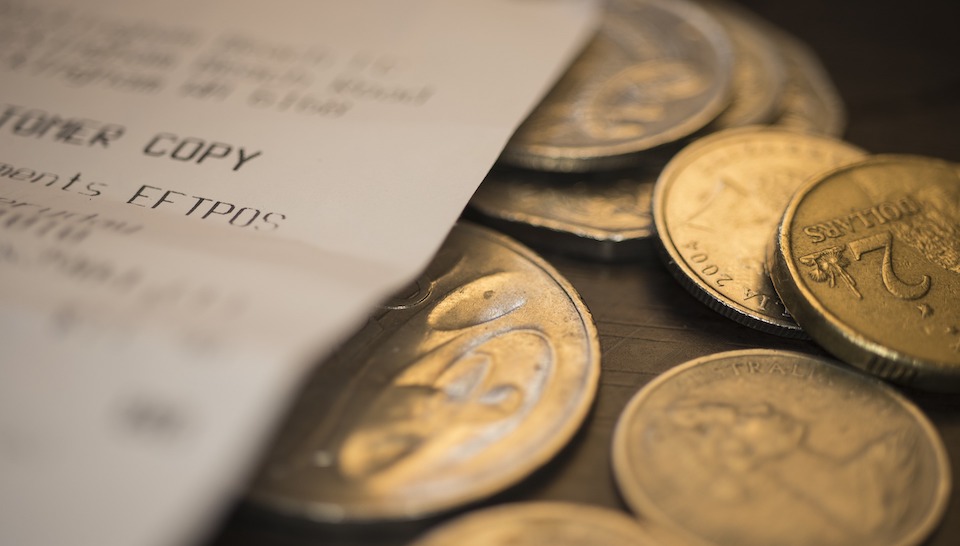8 Ways to Save Money on Chicken Feed that Actually Work
How to save money on chicken feed
With the current cost of living crisis, Australians are revisiting their budgets all over the country. And while chickens provide both economic benefits, such as eggs, and many other benefits, they also come with a cost.
The main cost of keeping chickens is feed. Feed costs, like everything else, are continuing to go up. So it makes sense to try to save money on chicken feed.
Why most feed-saving hacks don't work
There is a lot of bad advice out there. Most feed-saving hacks, like bulking feed out with other ingredients or limiting access to food, don't work and actually cost you money.
A poor diet leads to deficiency and disease. Sick chickens lay fewer eggs and have a much shorter productive life and life expectancy. This costs you money, not to mention the vet bills!
For 8 feed-saving myths BUSTED, click here.
Fortunately, there are some fool-proof ways to save money on chicken feed that do actually work. We know; we've tried them in our own chicken coop!
8 ways to save money on chicken feed
1. Reduce chicken feed waste
When customers complain about how much their chickens eat, the first question we ask is what type of feeder they use. Usually, they are using a feeder that allows chickens to rake feed onto the floor.
Once feed is on the floor, it becomes contaminated with faeces, which carry worms and disease. Chooks won’t eat dirty feed unless they have to, and if they do it can make them sick. Sick chickens are expensive and unproductive!
A waste-reducing feeder that stops chickens from raking feed onto the floor can reduce feed costs by up to half!
No more dirty, wet feed on the floor saves money and time. And less feed on the floor also helps deter rodents. If every bit of feed is in the feeder, where it goes to your chooks, it is saving you money!
2. Stop feeding the wildlife
Rodents and pest birds can easily consume as much feed as your flock, adding to your feed bill. Stopping them from accessing the feed will help you save money.
Rodents tend to visit the chicken coop at night. Here are a few easy steps to deter rodents:
- Keep feed off the floor with a waste reducing feeder
- Clean up any scraps and never leave feed on the floor overnight
- Rodent-proof the coop
- Secure the feeder at night by removing it or using a Closure Cap
- Deal with rodent problems promptly
Wild birds visit the chicken coop during the day. In addition to running up your feed bill, wild birds carry diseases which can be passed on to your chickens.
A Dine a Chook Feeder will deter some wild bird species. Properly securing your coop and run is another defence – bird netting can be used effectively to roof your chicken run. We can also provide advice for deterring small birds species such as sparrows, just give us a call!
3. Choose a pellet feed
Pellet feed is by far the best option for saving money.
Scratch mixes are cheaper up front, but they encourage selective feeding. Chickens avoid eating the parts of the feed they don’t like. This affects their health, reducing egg production, but it also ups your feed bill!
Chickens may also eat more scratch mix than pellets, either because they are not getting enough protein or because they are encouraged to gorge on less healthy treats like sunflower seeds and corn kernels.
4. Worm your chooks
If your chooks have worms, these parasites are absorbing some of the nutrients from their feed. Although high worm loads can lead to decreased appetite, generally speaking chickens with worms will eat more while losing weight and laying fewer eggs.
Regular worming – twice a year – can help decrease your feed bill. And at as little as 10 cents per dose, it is well worth it!
5. Shop around for protein
Shop around for feed. Rural supply stores tend to be the cheapest place to buy chicken feed.
Choose a feed with 16-18 % protein. Protein is the most important part of the feed and the most expensive ingredient. Insufficient protein causes health issues and decreased egg production. It can also result in your chickens eating more because they don’t feel satiated.
6. Think twice before buying bulk
While buying bulk can save money, unless you have hundreds of chickens, buying more than a standard 20 kg bag of feed at a time is unlikely to be worthwhile.
Stored feed can easily be ruined by mould, moisture or spoilage. And the nutrient value degrades over time.
Although you might save a few dollars up front, for most backyard chicken keepers buying bulk is too risky to make it economically beneficial.
7. Store feed correctly
The nutritional value of feed decreases significantly with storage, and particularly with poor storage. If their feed isn’t giving them what they need, your chooks will eat more!
Save money by keeping stored feed cool, dry and away from sunlight. Keep feed bags off the floor and store in a secure container to protect from insects and rodents.
Learn how to store chicken feed correctly on our blog.
8. Improve feed efficiency or feed conversion
Feed conversion is about how well your chickens are using their feed by absorbing the nutrients. Better feed efficiency means that chickens eat less but gain the full benefits of the feed.
The poultry industry has spent millions researching feed efficiency. Some cheap dietary additions that have been found to help include probiotics, oregano essential oil and garlic (check out the studies here, here and here).
Visit our blog for a full breakdown of the 2022 costs of chicken keeping.
Or read about 8 feed-saving strategies that you should avoid, here.
Happy chicken keeping!
Rachael at Dine a Chook Australia




